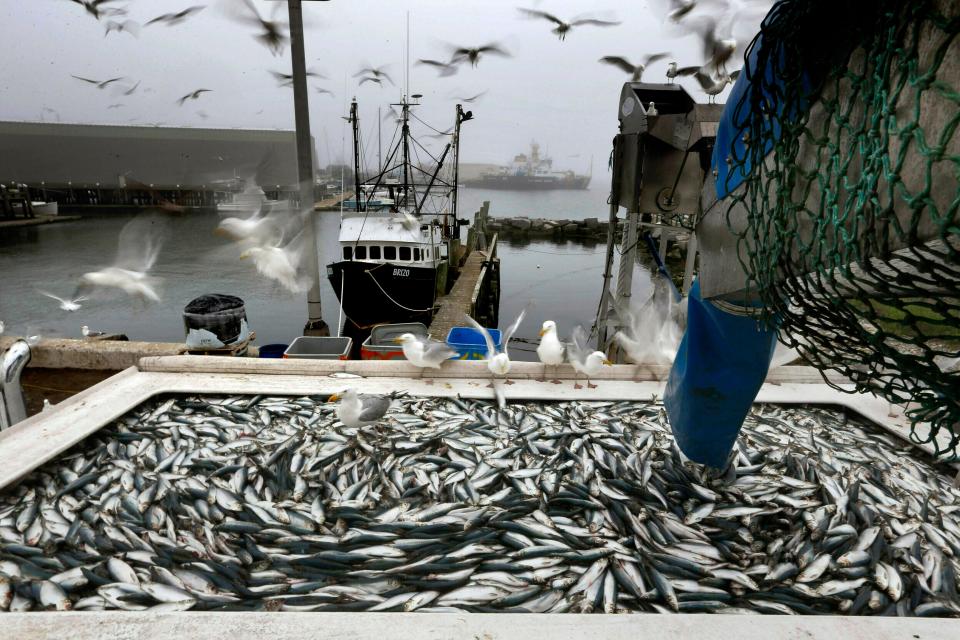Fishermen take case against paying for monitors to SCOTUS
PORTLAND, Maine (AP) — A group of commercial fishermen is asking the U.S. Supreme Court to stop the federal government from making them pay for workers who gather data aboard fishing boats.
The fishermen harvest Atlantic herring off the East Coast and are opposed to a 2020 rule implemented by the National Oceanic and Atmospheric Administration that requires the industry-funded monitoring. The monitors are workers who collect data on board fishing vessels that are important for informing regulations.

The fishermen, led by main plaintiff Loper Bright Enterprises of New Jersey, have argued that the requirement forces them to pay more than $700 per day to third-party contractors, and that makes fishing financially unsustainable. They've lost in lower court rulings, and filed a petition with the high court on Nov. 10.
“Making these vessels pay to have the observer coverage on them just decreases hardworking fishermen's wages and makes it less attractive for vessels to continue,” said Wayne Reichle, president of Lund's Fisheries of New Jersey and an owner of two of the boats that are plaintiffs in the case. “In some cases, it prevents them from fishing.”
The fishermen have made the case that Congress never gave federal regulators the authority to require the expense of paying for the monitors. The price of at-sea monitoring, and who must pay for it, is a longstanding source of tension between commercial fishermen and regulators.
New development: Burnt Mill Estates drops golf course from 174-unit housing community
The monitors are on board to collect data about subjects such as bycatch and check for regulatory compliance.
Attorneys for the fishermen have said the case has the potential to set a precedent by overruling "Chevron deference," which the U.S. Department of Justice has described as providing “principles to determine the extent to which a court reviewing agency action should give deference to the agency’s construction of a statute that the agency has been delegated to administer.”
A representatives for NOAA declined to comment. The agency does not typically comment on pending litigation.
Dock Square gridlock:Kennebunkport irked over tour buses putting brakes on traffic
NOAA officials said earlier this month that the industry-funded monitoring program will be suspended starting in April 2023. That is because the agency does not have a permanent source of money to cover its own administrative costs associated with the program next year, officials said. However, the fishermen said they're going ahead with their lawsuit because they want the industry-funded monitoring rule permanently stopped.
The harvest of Atlantic herring is a major fishery on the East Coast, with most of the fish coming to the docks in New England and New York and New Jersey. The fish are economically important as bait and food.
The nation's haul of herring has shrunk considerably in recent years due to tight fishing quotas. NOAA has described the species as overfished.
This article originally appeared on Portsmouth Herald: Fishermen take case against paying for monitors to SCOTUS

